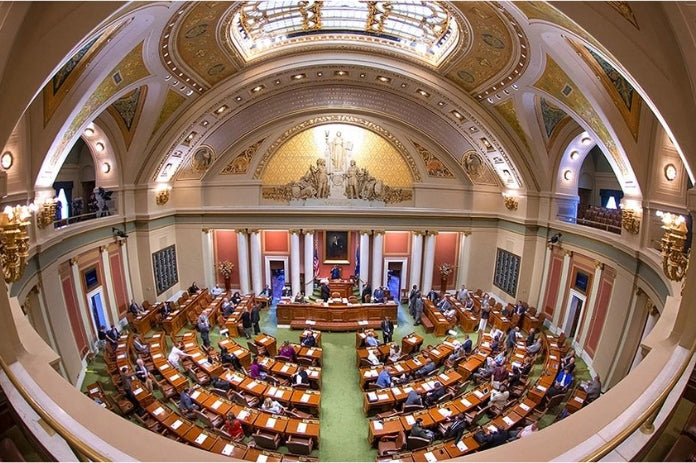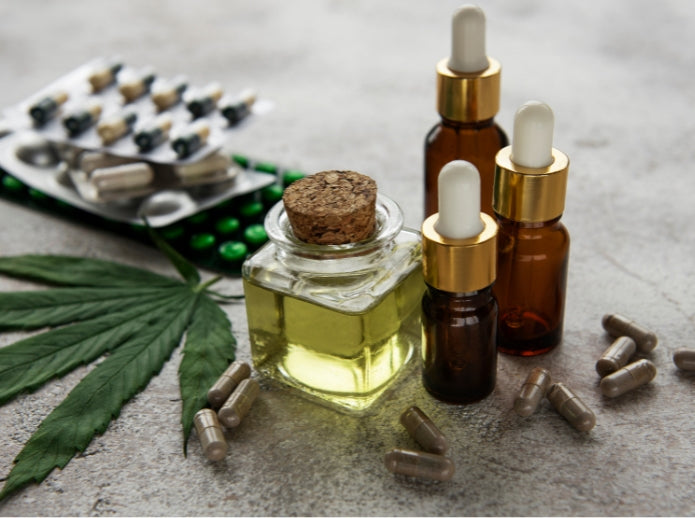The law will set up a regulatory framework for Maryland’s adult-use cannabis legalization initiative approved by voters last November.

One of the more critical aspects of establishing a recreational marijuana market in a state where adult-use cannabis has been legalized, either by the state legislature or a voter referendum, is creating a pathway to regulating the sale of marijuana. Simply passing legislation to legalize cannabis does not automatically allow citizens to go out and start purchasing products. In recreational cannabis, "legal" and "accessible" are two entirely different concepts.
For example, the state of Virginia's cannabis quandary is a fascinating and perplexing case study regarding the process of transitioning from legalizing adult-use marijuana to actually opening up retail dispensaries to the general public.
In 2021, the Virginia General Assembly passed a measure legalizing recreational adult-use cannabis, which was signed into law by the governor in July. However, while the law did allow adults 21 and older to possess up to one ounce of marijuana and smoke it privately in their homes, it did not provide any process for legally selling marijuana a la a retail dispensary.
As State Senate Majority Leader Dick Saslaw (D-Fairfax) says, "I think by and large most of the people would like to get it straight. We haven't done it. It's weird that it's legal to possess it, but you can't sell it."
"I think by and large most of the people would like to get it straight. We haven't done it. It's weird that it's legal to possess it, but you can't sell it."
- VA State Senate Majority Leader Dick Saslaw (D-Fairfax)
Despite the frustration on the part of lawmakers and regular citizens wanting to purchase marijuana products, Governor Glenn Youngkin (R), who was elected after his predecessor signed the initial legalization bill, does not appear motivated to follow through with creating a regulatory framework to allow for the establishment of a retail marketplace in the state.
Herein lies the problem with the legalization efforts in certain states. If a person cannot purchase cannabis from a legally licensed dispensary, it does not matter that they are allowed to possess and smoke it.
Thankfully for the citizens of Maryland, their state legislators, and the governor have chosen to thoughtfully and appropriately follow through with the state's marijuana legalization initiative approved by over 67% of voters last November. According to numerous media outlets, Governor Wes Moore (D) has signed a bill passed by state lawmakers last month to set up a regulatory framework for legal recreational cannabis sales, setting the stage for statewide legalization.
The follow-up legislation includes the following provisions:
- Existing medical cannabis dispensaries can sell recreational products to adults 21 and older.
- The adult-use tax rate will be set at 9%.
- Licensing is capped at 300 dispensaries, 100 processors and 75 growers.
- A new, independent Maryland Cannabis Administration will regulate the program.
- The program establishes a separate license category for qualified social equity applicants.
- The sale of delta-8 hemp products on the broad market will now be illegal.
- Localities will not be allowed to impose additional taxes or prohibit existing medical cannabis businesses that convert to dual licenses from operating in their area.
- Single business entities can own up to four dispensaries.
Along with ensuring that Marylanders 21 and older are given ready access to legal and regulated marijuana, Moore and state house leaders have been adamant about including powerful and effective social equity elements in implementing the new adult-use cannabis industry in Maryland.
To that end, along with creating a pathway for social equity applicants to receive licenses for dispensary ownership, past convictions for offenses no longer illegal under the new law will automatically be expunged. Likewise, those individuals serving time for those crimes will be eligible for resentencing.
In an interview with Baltimore TV station WJZ, Moore said, "The criminalization of marijuana harmed low-income communities and communities of color profoundly. We want to make sure that the legalization of marijuana lifts those communities now in a profound way. This will ensure the rollout of recreational cannabis in our state drives opportunity in an equitable way."
"The criminalization of marijuana harmed low-income communities and communities of color profoundly. We want to make sure that the legalization of marijuana lifts those communities now in a profound way. This will ensure the rollout of recreational cannabis in our state drives opportunity in an equitable way."
- Maryland Governor Wes Moore (D)
Maryland's approach to legalizing recreational cannabis should serve as an easy-to-replicate template for states contemplating their adult-use initiatives. By understanding the importance of a thorough and well-thought-out approach to implementing a regulatory framework, state lawmakers and Gov. Moore have delivered on their promise to fulfill the wishes of their constituents. Virginia and other states stuck in follow-through purgatory would do well to learn from their attentive counterparts in the Terrapin state.




























